Duxford: The village rediscovering its lost pubs and ale houses
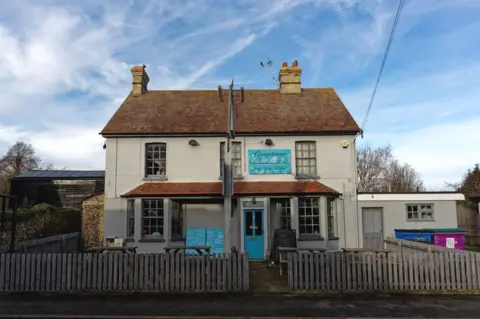 BBC
BBCWhen Mike Priestley laid on a lost pub crawl in Duxford, he expected just one or two people to turn up. He was stunned when more than 100 joined his historical trail through the village's long-lost ale houses. Why did Duxford once have so many pubs and ale houses?
In the mid-19th Century, the Cambridgeshire village of Duxford was home to a few hundred people, most of whom worked the land.
But while Duxford may have had just one butcher, one carter and one joiner, it had at least eight (possibly nine) pubs or ale houses.
The beer history of the village, which now has a population of 2,800 people, has been pieced back together by Mike Priestley and the newly re-established Duxford History Society.
Their findings have helped spark something of a revival of historical interest in the village, said Mr Priestley.
He admits he is not certain as to why this has happened.
"I can only give you my perspective," he said. "I was looking for something to do when I retired.
"I joined the council and I was told there was a history archive that needed to be worked on."
Then, while out playing with his grandchildren, he came across the gravestone of a former 19th Century soldier that captured his imagination.
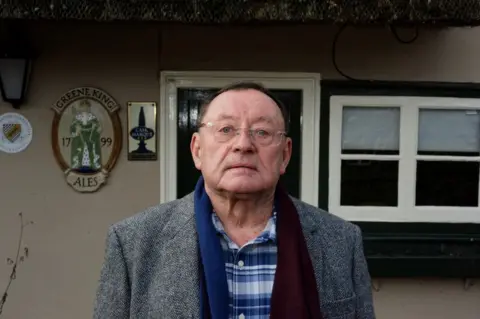
When he asked about the village's archive, Mr Priestley was told he needed to see 86-year-old Jim Longstaff.
"That's what kicked it all off," Mr Priestley said.
As he searched through Mr Longstaff's material looking for something to discuss at the inaugural meeting of the re-formed history society, something of interest started to take hold of him.
"The thing that struck me straight away was the the thing that has struck most people - the number of pubs.
"When I showed people pictures of the places at the meeting, people were saying they didn't know where they were.
"So I thought let's have a history walk and we will go around and show everybody where they are.
"We did a history pub crawl. We got more than 100 people.
"People came, it was just amazing. It was really good."
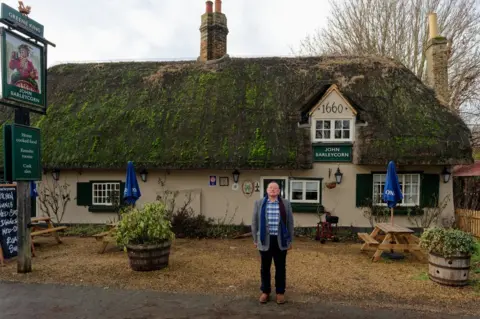
So, what were the pubs and ale houses of Duxford?
- The Red Lion, which used to be in Duxford but, following a boundary change, now sits in neighbouring Whittlesford
- The Flower Pot (now a private house)
- The John Barleycorn, which is still going strong
- The Butcher's Arms (now a private house)
- The Three Horseshoes (now a private house)
- The Black Bull (whereabouts unclear)
- The Wheatsheaf (now a cafe)
- The King's Head (now a private home)
- The Plough
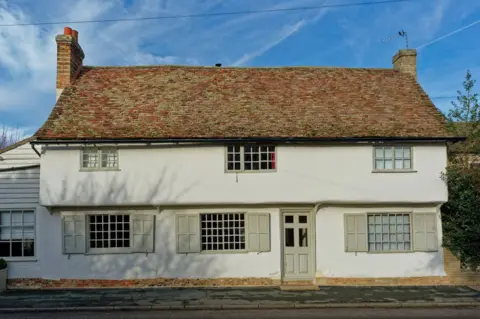
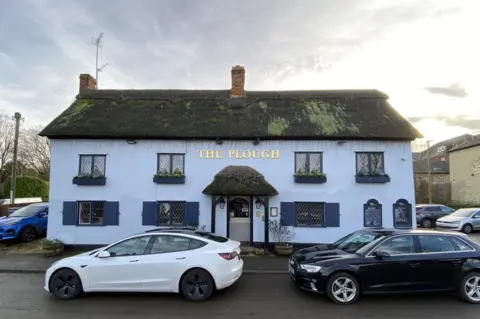
As to why there were so many drinking holes in a single village, Mr Longstaff believes it was partly down to self-preservation.
"Beer was a safer thing to drink because water was often contaminated out of the well so everybody drank beer," he said. "It was also part of the payment plan for the farm workers and kids who worked on the farms, they were paid in beer.
"They had pennies for pay and a certain number of pints each day.
"The difference between an ale house and a pub is that the ale houses could only sell beer, while pubs could sell wines and spirits," he said.
"That all changed, so they can now all do wines and spirits and food and everything else.
"I think people just went to the local, whichever it happened to be, unless they joined up with somebody else and went to their usual pub."
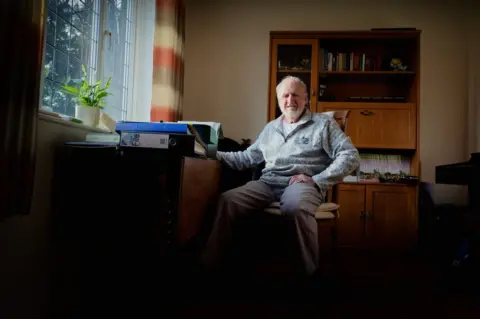
Duxford was far from alone in being a village with a large number of ale houses and pubs - it was common to have many drinking establishments across the UK.
The beer was made locally - often by the wife of the farmer, said Mr Longstaff.
Usually the beer had a very low alcohol content.
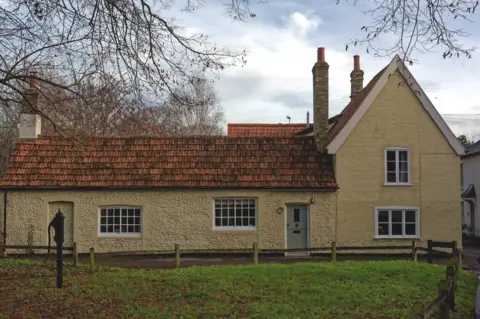
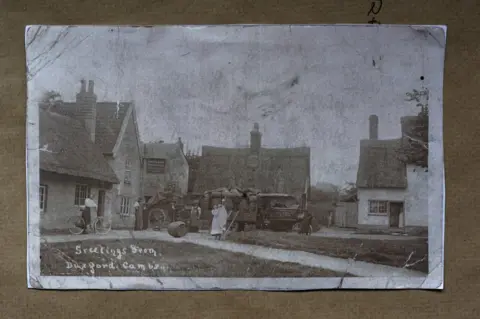
While Mr Priestley is a recent convert to the joys of local historical research, Mr Longstaff has been engaged in it for decades.
"I don't even know what got me started," he said.
"I found something about Duxford and thought it was interesting so I'll copy that and I then every time I found something about Duxford I thought I'd copy it and we've ended up with a house full of bits of paper and all sorts of stuff.
"It has got out of hand."
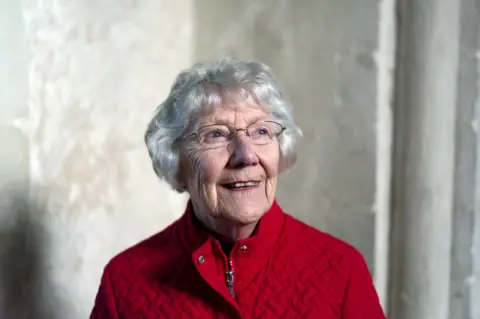
That's an admission his wife Phyllis more than agrees with.
"It has been hell at times. There's archives in the bedroom, in the loft, in the shed, in the greenhouse, everywhere.
"We are very different - I like clear spaces and clear tops and it doesn't bother Jim at all.
"He's been difficult to live with at times."

A decision has been made recently to relocate Mr Longstaff's Duxford archive to the community centre.
"I don't know what I'll do with the space," Mrs Longstaff said.
Mrs Longstaff too has wide-ranging historical interests and is a key member of the village's history society.
"My interest was St John's Church, the cemetery and the school," she said. "That's where I've done my work."
Her interest in the village's pub and ale house history, however, is less strong.
"The pubs don't interest me very much," she said.
" We don't go out to drink, we never have done."
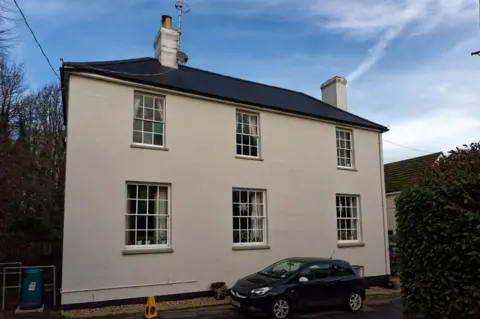

Find BBC News: East of England on Facebook, Instagram and Twitter. If you have a story suggestion email [email protected]
